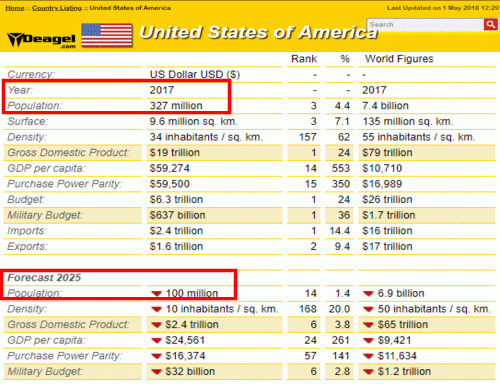She was running late – again.
Something about the broken downstairs bathroom vanity fixture, plus no clock upstairs where there was enough mirror light and she’d been cutting it close for pretty much every appointment, now.
This meeting, however, required punctuality. One doesn’t burst through the door in the midst of the Prelude to a Holy Roman Catholic Lenten service. No; beat every red light out the lakefront highway, to the outer county limits. Get there.
Parishioners had polka-dotted into their selected pews, some kneeling, others prattling in jeans and pink lipstick. She’d chosen an alternate entry which would lead her up a side aisle from the sanctuary, misstep in itself, fully visible as stranger in her long, putty colored skirt from the Poetry catalog.
Program in hand, she slid into a short window seat. The musicians in the loft above were warming up, on chants and interludes. Pitch seemed just under the constant of the keyboard assist. Her chest tightened.
Precisely at the time appointed, one cello could be heard checking its strings for intonation. Her heart fluttered. The piece intended had been beautifully arranged from an audio file, for three stringed instruments, by her stalwart adult student; in seconds, its musical worth would be realized in real time.
The trio launched its now familiar intro. So many lesson sessions working the cello part with its composer, she could now see and follow the musical staff in her mind’s eye as the performance unfolded.
The cello, itself, was in tune. Sigh, of relief, from the cello teacher. The cello part was also played in tune, even the shift to second position – especially the first time, in the solo section – and, her bosom swelled ever so slightly with the closest to maternal pride a barren spinster could muster. With this offering, her student had redeemed his first public attempt, proving to any keenly attentive ear his steady, determined commitment to the goal of good music making.
The trio, however, was its own story. Two other string voices, alto and soprano, while written well had been assigned to children not ready for prime time. Under the assault of tonal relationships so jarringly incongruent, all her Shinichi Suzuki sensibilities recoiled. Scientific studies having shown that both blood pressure, heart rate, and even immune system function were depressed by bad music, her whole body felt acutely sick.
The piece rendered to conclusion, she sat, staring down at the musical order for Mass printed in her program. The parishioners also sat, motionless, as if accustomed to what had just occurred, only one woman having given a tight-smiling side long glance toward her husband at the peak of the worst of it as if in empathetic apology.
With demure acknowledgement, she bowed her head and stepped into the aisle. Turning toward the rear of the church, hesitating at the last pew only to realize a gentleman’s intent to choose the very seat, she continued through the doorway toward a stairwell leading outside. Several more attendees were just entering, the last among them a man with a cross around his neck. Smiling quietly, he stepped aside as if in understanding as she continued out the door to the parking lot – both he, and all of these, choosing to arrive just after the musical Prelude.
She’d not been raised Catholic. Hers had been a modest, Protestant, non-denominational sectarian upbringing, its congregational music barely ever supported by the reliable pitch of a lone piano. Bad music, in the form of worship to God Almighty and His Son, Jesus Christ, had been the order of her every Sunday morning. Hymns, written by legends the likes of Fanny Crosby, had been butchered and nearly buried by woeful a capella singing, each stanza slower and lower than the one before, for as long as she could both remember and hope to forget. Driving thirty minutes against the clock, just to subject her entire body to this reminder, was not what she’d either hoped for or expected on such a fine Lord’s Day.
Perhaps human vanity, colliding with mediocre standards for beauty, yielded a level of acceptance inuring the masses to that which would otherwise be gloriously possible. Maybe somebody’s granddaughter had just done the best she could. Patriarchally, God Himself had been pleased in spite of it all. As for the music teacher, getting home as fast as she could seemed the only antidote.
The car radio cranked, hoping for anything but 50s rock and roll, Carole King was heard singing about something so far away. Always a little flat, she could never hold a candle to Carly Simon; down went the volume, on the car radio. Minutes later, enter the Righteous Brothers’ who’d Lost That Lovin’ Feelin’. By this time, she could only laugh, the tears coursing her face.
No ENYA in sight to soothe an aching heart, what was that sound now? None other than the Norfolk Southern freight, racing right alongside her highway route. Steadily rhythmic, train cars clipping railroad ties, all the way. Succor, for both professional vanity and a deep, profound need for fundamental wellness to heal her violated, broken spirit. Better late, than never.
.
.
.
Copyright 4/6/25 Ruth Ann Scanzillo littlebarefeetblog.com All rights those of the author, whose story it is and whose name appears above this line. Sharing by blog TITLE exclusively, with due acknowledgements, and that not via RSS Feed. Plagiarists are bottom feeding sub humans. Thank you.
.
.
.
.
.
.




